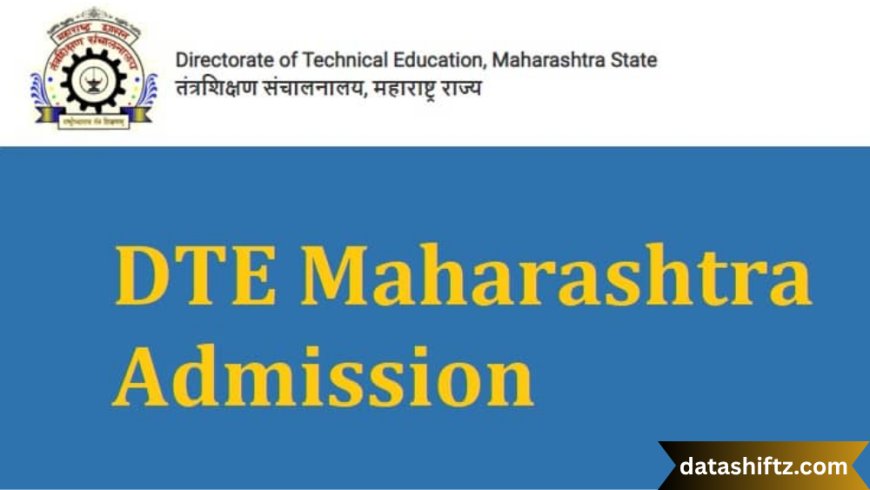DTE: Directorate of Technical Education – Role, Functions, and Impact on Technical Education in India

Introduction
In India’s rapidly evolving educational ecosystem, the Directorate of Technical Education (DTE) plays a crucial role in shaping the future of technical and vocational education. The DTE serves as the regulatory, administrative, and developmental body responsible for overseeing polytechnic institutions, engineering colleges, and diploma courses across various states. By setting curriculum standards, ensuring quality education, and implementing state and central government policies, DTE helps drive innovation and skill development in key industries.
This comprehensive blog post explores the significance of DTE, its structure, responsibilities, services, admission processes, and its contribution to India’s growing demand for a technically skilled workforce. Structured tables and lists provide a clear overview of its impact.
Understanding DTE: Overview and Importance
The Directorate of Technical Education is a government body operating under the Ministry of Higher and Technical Education in various Indian states. Its primary objective is to enhance the quality of technical education and promote innovation and skill development among youth.
Each state in India has its own DTE (such as DTE Maharashtra, DTE Karnataka, etc.), which coordinates with national-level bodies like AICTE (All India Council for Technical Education), UGC, and other educational boards.
Key Information about DTE
| Attribute | Details |
|---|---|
| Full Form | Directorate of Technical Education |
| Governing Ministry | Ministry of Higher and Technical Education (state-wise) |
| Coverage | Polytechnic, Diploma, Engineering Colleges, Industrial Training |
| Affiliations | AICTE, UGC, State Universities |
| Core Objective | To ensure the quality, regulation, and development of technical education |
Key Roles and Responsibilities of DTE
DTE acts as a bridge between institutions and state government policy, managing everything from infrastructure development to academic syllabus design and faculty training.
Primary Functions of DTE
-
????️ Regulation of Technical Institutions
Approves and monitors government and private engineering, diploma, and polytechnic colleges. -
???? Curriculum Development
Designs and updates syllabi in collaboration with industry and academic experts. -
???? Examination and Certification
Conducts diploma-level examinations and issues certificates to students. -
???????? Faculty Development
Provides training programs and workshops to upgrade teaching standards. -
????️ Infrastructure Development
Recommends funding and development of laboratories, libraries, and hostels. -
???? Industry Collaboration
Encourages partnerships between institutions and industries for internships and placements. -
???? Admission Process Coordination
Manages centralized admission processes such as CAP (Centralized Admission Process). -
???? Research and Innovation Promotion
Supports research grants and innovation challenges for students and faculty.
Admission Process through DTE
DTE handles admissions for diploma and degree courses through a centralized, merit-based counseling system. Each state has its own procedures and schedule.
Admission Steps (Example: DTE Maharashtra CAP Process)
| Step No. | Admission Activity | Description |
|---|---|---|
| 1 | Online Registration | Candidates register via official portal and upload documents |
| 2 | Document Verification | Documents are verified at designated facilitation centers |
| 3 | Provisional Merit List | Rank list prepared based on qualifying exams |
| 4 | Final Merit List | Released after resolving grievances |
| 5 | Option Filling | Candidates select preferred colleges and courses |
| 6 | Seat Allotment | Seats allotted based on merit and reservation policies |
| 7 | Reporting to Institute | Students confirm admission by paying fees and submitting documents |
DTE-Affiliated Institutions
DTE oversees thousands of institutions including engineering colleges, polytechnics, industrial training institutes (ITIs), and management schools.
Types of Institutions under DTE
| Type of Institution | Description |
|---|---|
| Engineering Colleges | Offer undergraduate (BE/B.Tech) and postgraduate (ME/M.Tech) programs |
| Polytechnic Institutes | Provide 3-year diploma programs after Class 10 |
| ITIs (Industrial Training Institutes) | Focus on skill development in specific trades like electrician, fitter, etc. |
| Pharmacy & Management Colleges | Offer diploma and degree courses in pharmacy, business, and applied sciences |
Contribution to Technical Education and Industry
DTE contributes significantly to developing a skilled workforce aligned with industry needs. It plays a vital role in:
DTE's Contribution to Indian Economy
-
???? Workforce Development: Supplies qualified technicians and engineers across industries.
-
???? Industry Readiness: Ensures students are trained in current industry technologies and practices.
-
???? Global Competence: Prepares students for international job markets with industry-relevant curricula.
-
???? Academic-Industry Collaboration: Bridges the gap through MoUs, internships, and seminars.
-
???????? Teaching Excellence: Conducts Faculty Development Programs (FDPs) to enhance teaching methods.
-
???? Innovation Promotion: Organizes hackathons, project expos, and startup bootcamps.
DTE Digital Services and Modernization
To streamline operations and promote transparency, many DTEs have digitized their services. These include:
Digital Services Provided by DTE
| Service | Platform/Portal |
|---|---|
| Online Admissions | eAdmission/DTE Portal |
| Document Verification | Facilitation Centers & Online Upload |
| Results Declaration | Official DTE website |
| Academic Calendar & Notifications | Web Portal and SMS/Email alerts |
| Scholarship Applications | National Scholarship Portal (NSP) |
| Grievance Redressal | Student Helpdesk and Online Forums |
Challenges Faced by DTE
Despite its success, the DTE faces numerous challenges that must be addressed to improve technical education standards.
Major Challenges in DTE Functioning
-
???? Infrastructure Disparities – Many rural institutes lack modern labs and facilities.
-
???? Dropout Rates – Students from lower-income backgrounds often drop out mid-course.
-
???????? Faculty Shortages – Many institutions operate with limited teaching staff.
-
⚙️ Curriculum Lag – Syllabi are sometimes outdated and not in sync with industry trends.
-
???? Digital Divide – Unequal access to online learning platforms post-COVID.
-
???? Low Employability – Skill gaps between what is taught and what industries require.
The Future of Technical Education with DTE
The National Education Policy (NEP) 2020 and Digital India initiatives are pushing DTEs across states to reimagine their role in higher technical education.
Future Reforms and Focus Areas
-
???? Curriculum overhaul in line with NEP 2020
-
???? Integration of AI, Data Science, and emerging tech courses
-
???????? Focus on skill-based certifications and internships
-
???? Career counseling and placement cells at all institutions
-
???? International collaborations with global universities and industries
-
♻️ Green campuses and eco-friendly infrastructure
Conclusion
The Directorate of Technical Education (DTE) is the cornerstone of India’s technical and vocational education framework. From overseeing institutions to conducting admissions and standardizing curriculum, DTE ensures that students are empowered with the knowledge, skills, and training necessary to thrive in a competitive global economy.
By addressing existing challenges and embracing digitalization and innovation, DTE can further its mission of making technical education more accessible, industry-relevant, and future-ready.





























